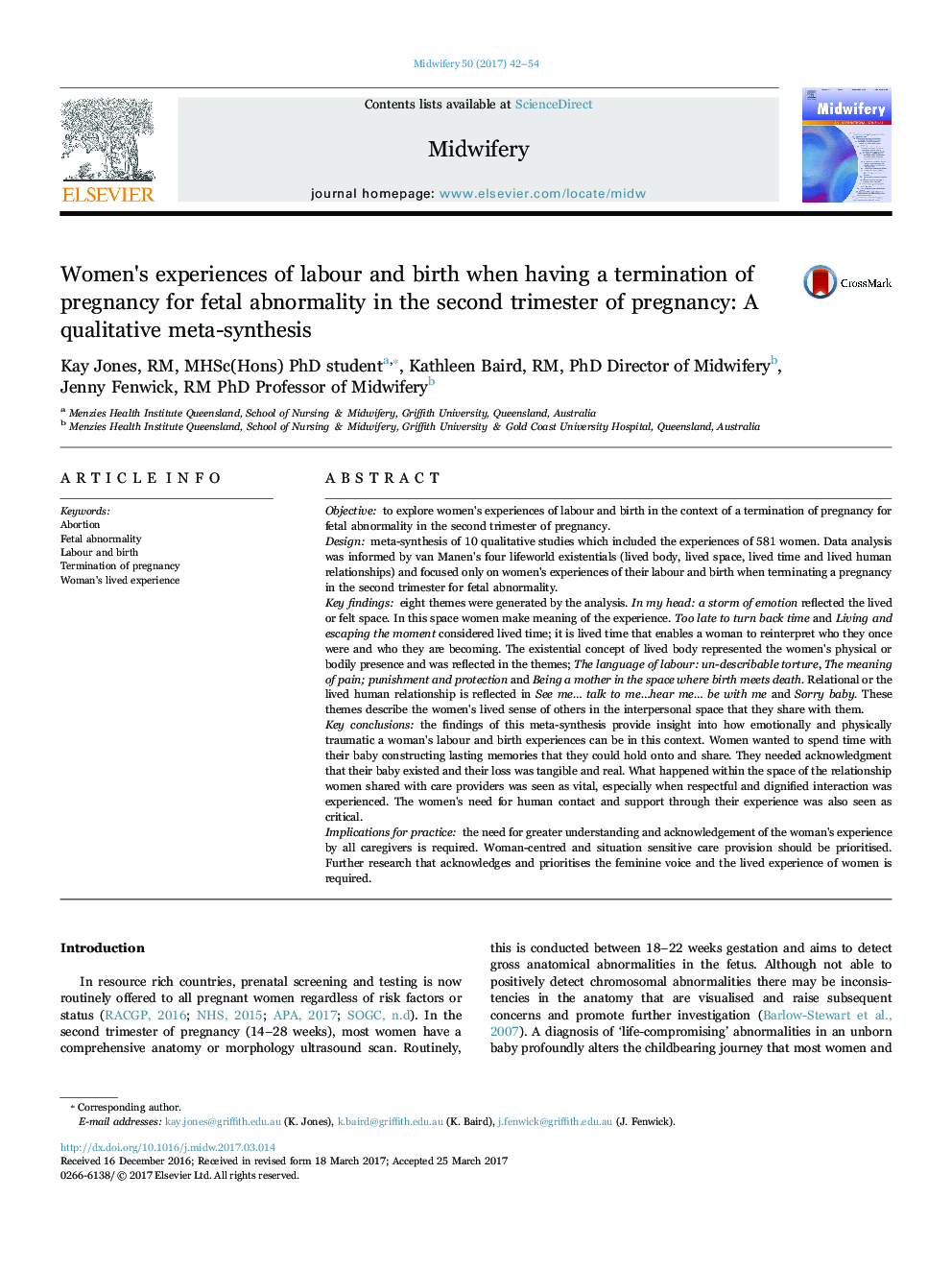| کد مقاله | کد نشریه | سال انتشار | مقاله انگلیسی | نسخه تمام متن |
|---|---|---|---|---|
| 5122350 | 1487134 | 2017 | 13 صفحه PDF | دانلود رایگان |
- The labour and birth process for women experiencing a therapeutic termination of pregnancy was a profoundly traumatic experience that caused extreme emotional and physical pain.
- The lack of behavioural 'scripts' or societal norms to inform women's labour and birth experiences left them struggling to make meaning of the space they found themselves in.
- Health care providers that created a 'safe' space for the woman while she laboured and gave birth to her dead baby made a significant difference to her perceptions of the experience.
- This experience is unlike any other human experience.
- Women labouring and giving birth in the context of a termination of pregnancy 'feel' like mothers even though they may question their maternal identity.
Objectiveto explore women's experiences of labour and birth in the context of a termination of pregnancy for fetal abnormality in the second trimester of pregnancy.Designmeta-synthesis of 10 qualitative studies which included the experiences of 581 women. Data analysis was informed by van Manen's four lifeworld existentials (lived body, lived space, lived time and lived human relationships) and focused only on women's experiences of their labour and birth when terminating a pregnancy in the second trimester for fetal abnormality.Key findingseight themes were generated by the analysis. In my head: a storm of emotion reflected the lived or felt space. In this space women make meaning of the experience. Too late to turn back time and Living and escaping the moment considered lived time; it is lived time that enables a woman to reinterpret who they once were and who they are becoming. The existential concept of lived body represented the women's physical or bodily presence and was reflected in the themes; The language of labour: un-describable torture, The meaning of pain; punishment and protection and Being a mother in the space where birth meets death. Relational or the lived human relationship is reflected in See me⦠talk to meâ¦hear me⦠be with me and Sorry baby. These themes describe the women's lived sense of others in the interpersonal space that they share with them.Key conclusionsthe findings of this meta-synthesis provide insight into how emotionally and physically traumatic a woman's labour and birth experiences can be in this context. Women wanted to spend time with their baby constructing lasting memories that they could hold onto and share. They needed acknowledgment that their baby existed and their loss was tangible and real. What happened within the space of the relationship women shared with care providers was seen as vital, especially when respectful and dignified interaction was experienced. The women's need for human contact and support through their experience was also seen as critical.Implications for practicethe need for greater understanding and acknowledgement of the woman's experience by all caregivers is required. Woman-centred and situation sensitive care provision should be prioritised. Further research that acknowledges and prioritises the feminine voice and the lived experience of women is required.
Journal: Midwifery - Volume 50, July 2017, Pages 42-54
